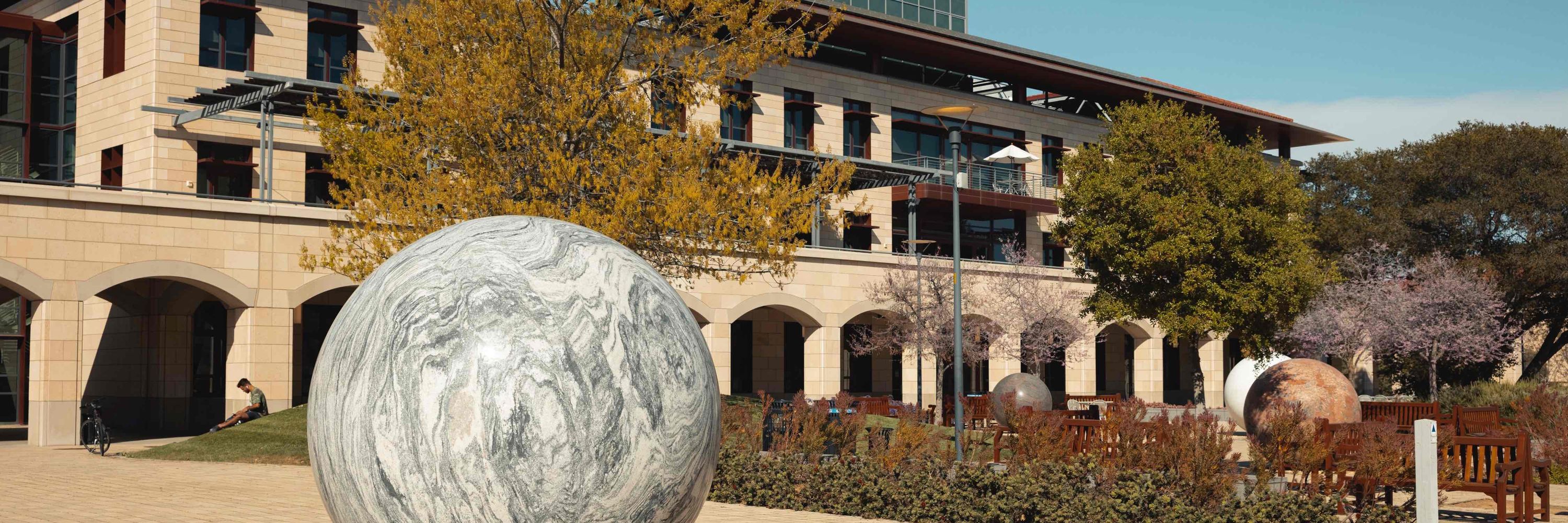

Stanford research shows evidence of climate-related health, economic & security risks has only strengthened since.
🔗 bit.ly/3ZBS3Ft

Stanford research shows evidence of climate-related health, economic & security risks has only strengthened since.
🔗 bit.ly/3ZBS3Ft
🔗 woods.stanford.edu/research/pub...
🔗 woods.stanford.edu/research/pub...
A new Stanford study finds that enhanced geothermal systems can provide constant, low-cost clean electricity while reducing land use and the need for wind, solar, and battery infrastructure.
🔗 stanford.io/45CjgeC
A new Stanford study finds that enhanced geothermal systems can provide constant, low-cost clean electricity while reducing land use and the need for wind, solar, and battery infrastructure.
🔗 stanford.io/45CjgeC
Woods has awarded special grants to support research doing exactly that, from humpback whale monitoring to flood protection impacts.
🔗 stanford.io/4t2Bv77




Woods has awarded special grants to support research doing exactly that, from humpback whale monitoring to flood protection impacts.
🔗 stanford.io/4t2Bv77
Join Stanford COP30 delegates and former U.S. climate negotiator Sue Biniaz for an upcoming webinar on the state of global climate cooperation.
Register: stanford.io/3LLjZ6A
Moderated by Woods Director @chrfield.bsky.social.

Join Stanford COP30 delegates and former U.S. climate negotiator Sue Biniaz for an upcoming webinar on the state of global climate cooperation.
Register: stanford.io/3LLjZ6A
Moderated by Woods Director @chrfield.bsky.social.
Now, the equation is changing.
Woods senior fellow Marshall Burke explains what that shift means — and why it matters.
Read more: bit.ly/3NridYV
Now, the equation is changing.
Woods senior fellow Marshall Burke explains what that shift means — and why it matters.
Read more: bit.ly/3NridYV
Read more: stanford.io/4qudcNz
Read more: stanford.io/4qudcNz
📖 stanford.io/4sGBTrE
🎥 bit.ly/3LEeaYA

📖 stanford.io/4sGBTrE
🎥 bit.ly/3LEeaYA
Sociologist @robbwiller.bsky.social and political economist @nmalhotra.bsky.social designed a "mega tournament" to compare common strategies for talking about #ClimateChange
#UncommonCollaborators episode 🎥 bit.ly/4oxIe62
Read more: stanford.io/4pB7cRX
Sociologist @robbwiller.bsky.social and political economist @nmalhotra.bsky.social designed a "mega tournament" to compare common strategies for talking about #ClimateChange
#UncommonCollaborators episode 🎥 bit.ly/4oxIe62
Read more: stanford.io/4pB7cRX
🔗 bit.ly/4aRAok7
@washingtonpost.com

🔗 bit.ly/4aRAok7
@washingtonpost.com
Learn more about their new name and membership structure below ⤵️
Learn about our new name and current research ➡️ bit.ly/NiA-2026-01

Learn more about their new name and membership structure below ⤵️
Through a Woods fellowship, she's applying natural capital models and spatial analysis to pinpoint high-impact reforestation sites around São Paulo, Brazil.
Learn more about Woods student programs: stanford.io/3N5lE7m

Through a Woods fellowship, she's applying natural capital models and spatial analysis to pinpoint high-impact reforestation sites around São Paulo, Brazil.
Learn more about Woods student programs: stanford.io/3N5lE7m
Apply here: stanford.io/3KRsFYI
#hiring #climatejobs #postdoctoraljobs

Apply here: stanford.io/3KRsFYI
#hiring #climatejobs #postdoctoraljobs
Watch the full episode: bit.ly/4oMPTNn
Watch the full episode: bit.ly/4oMPTNn
Explore our new hub spotlighting Stanford’s latest research on meat and the environment. We'll keep it updated with recent news and publications from Woods scholars and beyond.
🔗 stanford.io/48uyft2
#foodsecurity #alternativeproteins
Explore our new hub spotlighting Stanford’s latest research on meat and the environment. We'll keep it updated with recent news and publications from Woods scholars and beyond.
🔗 stanford.io/48uyft2
#foodsecurity #alternativeproteins
Explore the brief: stanford.io/4prwTFu
Explore the brief: stanford.io/4prwTFu
🔗 Full story: bit.ly/4iBt6CG

🔗 Full story: bit.ly/4iBt6CG
story + searchable NO2 exposure map: bit.ly/4rGdYIz @stanforddoerr.bsky.social @stanford.edu

story + searchable NO2 exposure map: bit.ly/4rGdYIz @stanforddoerr.bsky.social @stanford.edu
Video: www.youtube.com/shorts/Mbeyn...
Story: bit.ly/4ppNQQ5

Video: www.youtube.com/shorts/Mbeyn...
Story: bit.ly/4ppNQQ5
Learn more: stanford.io/4prrRsf
#biodiversity #naturalclimatesolutions
Learn more: stanford.io/4prrRsf
#biodiversity #naturalclimatesolutions
EPIC applications open in December – mark your calendar!
Meet Evan: stanford.io/43owZEW
EPIC info: stanford.io/4r1LUyY

EPIC applications open in December – mark your calendar!
Meet Evan: stanford.io/43owZEW
EPIC info: stanford.io/4r1LUyY
Woods Director Chris Field joins Stanford students and delegates to contribute expertise and solutions. Follow here: bit.ly/4qSG6re

Woods Director Chris Field joins Stanford students and delegates to contribute expertise and solutions. Follow here: bit.ly/4qSG6re
Watch the full #UncommonCollaborators episode 🎥 youtu.be/rQUVt3jMN_c
Read more: stanford.io/4gaergd
#climatesolutions #research #publichealth
Watch the full #UncommonCollaborators episode 🎥 youtu.be/rQUVt3jMN_c
Read more: stanford.io/4gaergd
#climatesolutions #research #publichealth
A new Stanford-led study shows that virtual reality can help close that gap.
Read more: bit.ly/4hzzsSt

A new Stanford-led study shows that virtual reality can help close that gap.
Read more: bit.ly/4hzzsSt
Discover student program opportunities: bit.ly/48tPCaB

Discover student program opportunities: bit.ly/48tPCaB

